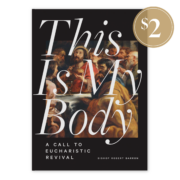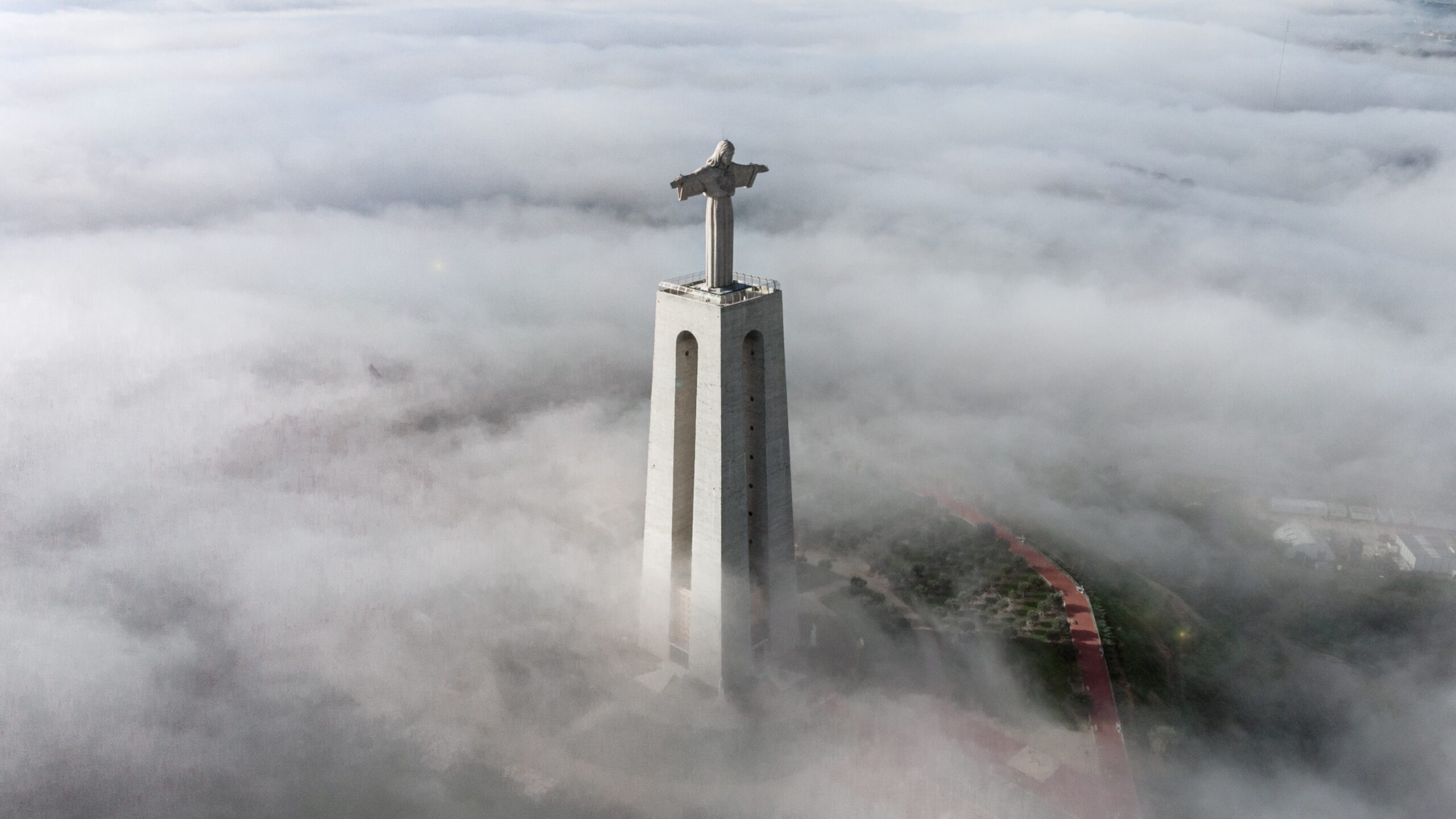Remember the Portuguese Bells.
I wrote this in my notebook as a reminder of my experiences of the Holy Triduum in Portugal, culminating for me with the ringing of the church bells on Easter morning.
This was many years ago, but I continue to remember the richness of this past experience.
I was staying in the Portuguese fishing town of Setúbal with some classmates from my study abroad program in Madrid. It was my first Holy Week outside of America, and spending time with the Portuguese and seeing the way they celebrated the Paschal Feast drew me out of the beige Catholicism I was familiar with at home. In Portugal, every nook and cranny of the land seemed to participate in the liturgical rhythms of that week, all groaning for the unveiling of the new creation. The culture was the Church, and the Church was the culture; something I never experienced at home.
At that time in my life, I was very far from the Lord, trying to forget the Church and pave my own “spiritual” path. I thought I was fulfilling myself. But really, in the words of Christian Bale’s character Rick in Terrence Malick’s Knight of Cups—a movie that still resonates with me— I was “living the life of someone I didn’t even know.”

As in the movie, God sent me messengers: people, space, time, all meant to awaken me from my deep sleep and stir my conscience to the Lord. But even when I would recognize his glory, I would try to turn away, not in holy awe, but pride. This was a recipe for disaster.
Thankfully, the memory of God and his salvation was etched in my conscience, and it would not leave me alone. I couldn’t help reading the particularities of my life within the Biblical narrative that I learned as a child. The hard part was accepting my life on its terms and being obedient to my mission. So it goes for all sinners.
Memory, collective and individual, plays an important role in salvation. The People of God are a people of memory who actively recall all the Lord has done for them, continually deepening their identity in the Lord across the ages in word and sacrament up to the end when God will be “all in all” (1 Cor. 15:28).
I was “living the life of someone I didn’t even know.”
In the Scriptures, the prophets call Israel to remember the covenant and all of God’s works. Jesus calls his disciples to recall Scripture to understand him. Angels and the Resurrected Lord himself call the disciples to remember his words and see their fulfillment in himself, the Eternal Word. This act of memory continues today. We remember all God has done for us and we await his second coming.
The more secular I became, not partaking in the sacramental life of the Church, the more I became forgetful of my true identity and God’s salvation of the world.
It took sacramentals like the Portuguese bells to awaken me from my slumber.
My time in Portugal was leading up to this. I was embarrassed by my lack of devotion after experiencing the intense devotion of the Portuguese on Good Friday. The whole town participated in the events of that day, drawing even tourists like me in.
The culmination came with the ringing of the bells, which like the horns blown by the Israelites, crumbled and knocked down the stony Jericho-like walls around my heart. I guess the events of the previous days set the stage for that final blow. Not only did the bells’ triumphant ringing open my heart, but they cleansed me and uplifted me beyond sin and death into the liturgical ascent to the Lord. I went to Mass, the great memorial sacrifice, encountering the fullness of life that lay there.
I vividly recall a change in perspective after that Mass. All things were now re-collected in the Lord. Later that day, I took a bus with my classmates to Lisbon, a beautiful city. Geographically, it is like San Francisco on a bay surrounded by hills. As the bus crossed the Golden Gate-like 25 de Abril bridge towards the city, I spied a giant Christ the King statue on the other side of the bay overlooking the city. It was like the Christ the Redeemer statue overlooking Rio de Janeiro.
In 1755, an earthquake and the resulting tsunami nearly destroyed Lisbon. This event nearly destroyed the faith of many sophisticates from around the world. Voltaire even used this event in Candide to ridicule Christianity. To this day, this horrible event is recalled as a sign against the faith. But it did not destroy the faith of many of the Portuguese people.

Instead, they reaffirmed their faith by building the Christ the King statue to guide and protect their land. And unlike many people in Europe, they have not been overcome by despair but reaffirmed their trust in the Lord. The memorial has the Sacred Heart pierced open for the redemption of the world. The wave of God’s mercy pours itself out upon the world and most immediately on this city.
What happened in 1755 was indeed horrible but not meaningless. At least, when joined with the memorial of Christ the King, it took on meaning for me.
Back to the bells.
As the bus crossed the bridge, I remembered the bells. They so shook my room with their sacred sound that the walls around my heart crumbled, allowing the wave of God’s love to flow into my heart and cleanse it of all its false desire. This prepared the way of the Lord, taking up his throne in me as my Lord and my God.
Around Easter, I often remember what happened to me in Portugal during Holy Week, grateful for the many ways grace intervenes. And while I wasn’t perfect after that event, it has become a turning point in my story. All thanks to the bells.
Next year, Catholic youth will gather with Pope Francis in Lisbon to celebrate World Youth Day. I hope that the events of those days will have the same effect on the youth as they did on me. And perhaps many will be saved by the bell.
